|
Speakers / Provocateurs
Speakers
|
John Hickey works in private industry.
He recently held the Chair of Animal Breeding at The Roslin
Institute which is part of The Royal Dick School of Veterinary Studies
at the University of Edinburgh in the United Kingdom. His area of
research spans animal breeding, plant breeding, with some spill over
into human genetics. In particular, he seeks to develop computational
methods to generate and analyse huge data sets with whole genome
sequence information as well as methods and breeding strategies that
use genomic information to increase rates of genetic progress. In
recent years his research group have worked on breeding projects in
pigs, chickens, cattle, groundnut, forest trees, strawberry, maize,
wheat and other species. Software and algorithms developed by John
Hickey and colleagues (http://www.alphagenes.roslin.ed.ac.uk/ )
underpin aspects of several of the largest breeding programs globally.
|  |
|
Molly Jahn is a professor at the University of Wisconsin-Madison
where she holds appointments in Agronomy, the Nelson Institute, the
Global Health Institute and the Wisconsin School of Law. She is Adjunct
Senior Research Scientist at Columbia University, Guest Scientist at
Los Alamos National Laboratory and a Special Government Employee at
NASA. She previously served as the 12th Dean of the College of
Agricultural and Life Sciences, Director of the Wisconsin Agricultural
Experiment Station, and Under Secretary of Agriculture overseeing four
USDA research and statistical agencies. Dr. Jahn led research programs
at the University of Wisconsin and Cornell University that produced
vegetable varieties now grown commercially and for subsistence on six
continents. In 2016, the Jahn Research Group was selected to lead a
cooperative R&D agreement with the US Government on food security, food
systems and national security. Her group has recently authored a
series of influential reports on risk in food systems with commercial
partners such as Lloyd’s of London, the US Army War College, the Geneva
Association, and Thomson Reuters. She consults globally for business
and finance, governments, philanthropic organizations, and
international multi-lateral institutions focused on agriculture, food
systems, risk, life sciences, development, national security and
environment.
|  |
|
Appolinaire DJIKENG is Professor and Director, Centre for Tropical Livestock Genetics and Health (CTLGH) The Roslin Institute, The University of Edinburgh, UK. CTLGH is a strategic livestock research and development alliance, between the University of Edinburgh (The Roslin Institute), Scotland’s Rural College and the International Livestock Research Institute (ILRI) with operating nodes in the UK (Edinburgh) and in Africa (Nairobi and Addis Ababa). CTLGH’s mission is focused on the development of tools, technologies and innovations to enhance productivity, resilience, efficiency and environmental sustainability of tropical livestock production systems through genetic improvement. CTLGH receives direct funding from the Bill & Melinda Gates Foundation (BMGF), The Foreign Commonwealth Development Office (FCDO), UKRI Biotechnology and Biological Sciences Research Council (BBSRC) and Jersey Overseas Aid (JOA). Dr. Djikeng’s research, capacity building and international development interests are centred on genetic improvement in tropical smallholder livestock systems. His experience include active research and leadership roles in the USA (Yale University, J Craig Venter Institute), in Africa/Global (national research organisations and universities, regional organisations, ILRI) and in the UK.
| 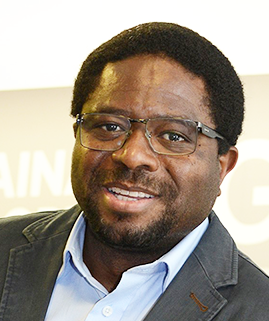 |
|
Kate Krueger is the founder of a boutique consulting firm that specializes in high-tech food and alternative protein technologies. She works with foundations, corporations, and investors to bring 21st century biotechnology to food innovation. As former Research Director at New Harvest, Kate led all scientific initiatives and served as the organization's chief technical expert on fermentation for protein production and cell-based meat. Before New Harvest, she worked at Perfect Day Foods, contributing to their foundational patent on novel milk proteins. Kate holds a Ph.D. in Cell Biology from Yale University and an A.B. in Biochemistry from Mount Holyoke College. She has been quoted by journals including Nature, the Anthropocene, and the New Yorker, and has shared her work through numerous lectures, articles, and podcasts. She is passionate about using technology for the betterment of society.
|  |
|
Alison Van Eenennaam is a Cooperative Extension Specialist in the field
of Animal Genomics and Biotechnology in the Department of Animal
Science at University of California, Davis. She received a Bachelor of
Agricultural Science from the University of Melbourne, and both an MS
and a PhD in Genetics from UC Davis. A passionate advocate of science,
Dr. Van Eenennaam has given over 650 invited presentations to audiences
globally, and was the recipient of the Council for Agricultural Science
and Technology (CAST) 2014 Borlaug Communication Award, and American
Society of Animal Science 2019 Rockefeller Prentice Award in Animal
Breeding and Genetics.
| 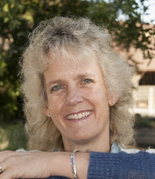 |
|
Alfred de Vries works at the Bill & Melinda Gates Foundation as Senior
Program Officer for Animal Production. He leads the Foundation’s
efforts in R&D for Animal Production (genetics, reproduction, feed)
aimed at increasing livestock productivity in Sub-Saharan Africa and
South-Asia. Alfred has extensive experience in animal breeding across
many geographies from his time at international breeding companies
(CRV, Topigs Norsvin and PIC). He had management positions in R&D,
technical service and operations. He obtained his MSc and PhD degrees
in Animal Sciences from Wageningen University and holds a Global
Certificate in Management from INSEAD.
| 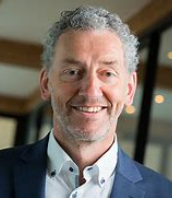 |
Provocateurs
|
Dr. John B. Cole is the PEAK Sr. Vice President for Research and
Development, where he oversees the genetics and reproductive physiology
research programs of the largest producer of dairy and beef cattle semen in
the world. Before joining PEAK in 2021, he was the Acting Research Leader
of the USDA’s Animal Genomics and Improvement Laboratory for 5 years and
a Research Geneticist for 12 years. In his 17-year career Dr. Cole authored
or co-authored more than 140 peer-reviewed journal articles, published
several book chapters, had more than a dozen competitive grant proposals
funded, mentored many visiting and postdoctoral scientists, and served on
numerous committees for graduate students. His articles in Journal of Dairy
Science have frequently been selected as Editor’s Choice Article of the
Month and he is an in-demand speaker at scientific, industry, and producer
meetings. His scientific contributions have been recognized with awards
from the American Dairy Science Association, National Association of Animal
Breeders, National Dairy Herd Information Association, and the United
States Department of Agriculture. He is an Adjunct Professor in the
Department of Animal Science at North Carolina State University and a
Courtesy Sustaining Professor in the Department of Animal Sciences at the
University of Florida, and he is also a member of the International
Committee for Animal Recording’s Working Group on Functional Traits. Dr.
Cole holds a PhD in Animal, Dairy, and Poultry Science from Louisiana State
University and is a graduate of the Louisiana School for Math, Science, and
the Arts. His research expertise is in the areas of genetic improvement of
fertility, health, and fitness traits in dairy cattle; development of
selection objectives for dairy cattle; use of genomic data to support on-
farm decision-making; and identification of recessive genetic defects in
cattle.
| 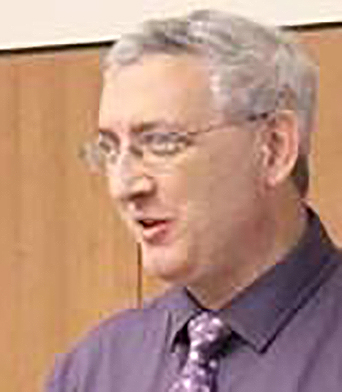 |
|
Daniel Gianola is Sewall Wright Emeritus Professor at the
University of Wisconsin-Madison. He has contributed to animal and plant
breeding by introducing Bayesian modeling, Markov Chain Monte Carlo
sampling and machine learning in quantitative genetics, and by
extending threshold models and recasting structural equation modeling
in mixed model frameworks. He has taught thousands of PhD and
post-doctoral scholars in more than twenty countries. His recognitions
are national and international, such as the Alexander von Humboldt
(Germany) and Chaire Pierre de Fermat (France) awards, an Honorary
Professorship in Hunan (China) and six honorary doctorates. He is an
elected member of the French Academy of Agriculture (Paris, France )
and of the Accademia dei Georgofili (Florence, Italy).
| 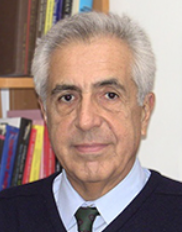 |
|
Hans Kelstrup is the Chief Science Officer at Beta Hatch, a pioneering biotech company which has been industrializing the production of insects for animal feed and beyond. He received his PhD in Biology from the University of Washington where he studied insect development and physiology in Brazil, and was an internationally recognized post doc scholar in South Africa working on wasp evolution. Since 2016, Hans has led the Beta Hatch R&D program and managed millions of dollars in funding, becoming a world expert in using the yellow mealworm as a novel tool for the 21st century’s food and pharma challenges. Research at Beta Hatch ranges from traditional breeding of insects to increase yield, to the intersection of biology and engineering to find efficiencies in protein production, to more forward-looking topics such as genomic manipulation, vaccine development, and using the mealworm as a resource for space exploration. Beta Hatch operates North America’s largest mealworm production facility and is a world leader in the mass production of insects to solve the world’s emerging protein and nutrition problems.
| 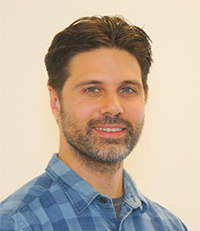 |
|
Kwan-Suk Kim is a Professor of Animal Science Department at Chungbuk
National University in Korea. He received a BS in Dairy Science (1994)
from KyungPook National University, a MS (2000) in Molecular Genetics
and a PhD (2003) in animal breeding and genetics from Iowa State
University. He joined the faculty at the Chungbuk National University
in 2004. His research has been devoted to the study of genetic factors
associated with growth, performance, and disease resistance traits for
livestock breeding and improvement programs. His major discovery was
that the MC4R gene polymorphism significantly affects feed intake, fat
deposition and growth in the pig. He shares three US patents from his
graduate research, and in 2002 he was the co-winner of the extremely
prestigious R&D 100 award, the Oscar of applied research for the PT1
(MC4R) gene test for pig appetite regulation. His current goals are to
integrate research both biological and genomic aspects of animal
diversity and then to transfer methods and technologies to enhance
conservation and optimum utilization of livestock genetic resources in
developing countries and for global agriculture. He is a recipient of
NongHyup Livestock award for the scientific contribution to Korean
Society of Animal Science and Technology in 2011.
| 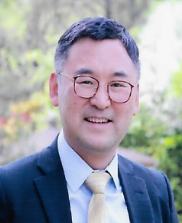 |
|
Cliff Lamb
is currently the Head of Department of Animal Science at Texas A&M University. He grew up on a family
ranch in Zimbabwe and received his primary and secondary education in South Africa. He received his
B.S. (1992) from Middle Tennessee State University and his M.S. (1996) and Ph.D. (1998) from Kansas
State University. He served as Assistant (1998-2004) and Associate Professor (2004-2007) at the
University of Minnesota followed by serving as a faculty member and the Assistant Director and
Professor at the North Florida Research and Education Center at the University of Florida (2008-2017).
His primary research efforts have focused on applied reproductive physiology to enhance production
efficiency of beef cattle operations. In addition to the United States, Dr. Lamb has conducted
experiments and implemented reproductive management strategies throughout the world including
Australia, Argentina, Brazil, Ethiopia, Hungary, Kenya, Malawi, Mexico, South Africa, Russia, and
Uruguay. In 2013, Dr. Lamb and six colleagues received the USDA-NIFA Partnership Award for
Multistate Efforts for their Extension efforts in reproductive management. He was the recipient of the
2015 American Society of Animal Science Animal Production Award and 2017 American Society of Animal
Science Physiology and Endocrinology Award. In 2021, Dr. Lamb was selected as a Fellow for Research in
the American Society of Animal Science. He also received the Texas A&M University - College of
Agriculture and Life Science’s Dean’s Outstanding Administrator Award. His programs have received more
than $14 million in grant funds or gifts. He has published more than 132 refereed journal articles,
along with more than 591 extension and research reports.
| 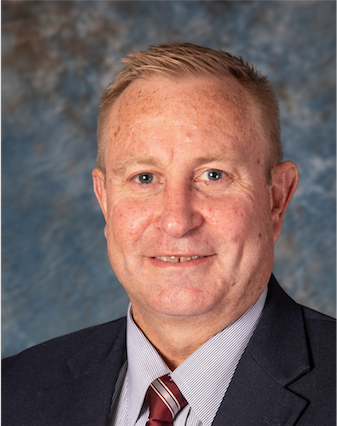 |
|
Benny Mote was born and raised in Happy Texas on a small family farm,
which primarily consisted of a 100 sow farrow to finish operation. Dr.
Mote received his BS degree in Animal science from the University of
Nebraska-Lincoln in 2002 and his Ph.D. in Animal Genetics at Iowa State
University in 2008. While at Iowa State University, his primary
research focuses on identifying candidate genes that affect the length
of a sow’s productive life. Upon the completion of his Ph.D. degree,
he joined Fast Genetics as a geneticist and system selection expert
until 2015 when he joined the faculty at the University of
Nebraska-Lincoln as an assistant professor and Swine Extension
Specialist. Specific research on pampiniform plexus size in boars
indicated its heritability and importance in selection for boar
fertility. Objective measures of sow feet and body confirmation for
use in gilt selection are ongoing indicator traits for sow productive
life. Additionally, the ongoing research utilizing a computer tracking
system for pig identification and activity will benefit the swine
industry as it offers a unique ability to obtain individual and group
activity measurements that have never been identified before. This
system will allow for genetic selection of activity traits and
simultaneously allow producers to enhance their management and
facilities to improve animal well-being and production. His research
interest lies in using novel technologies in conjunction with applied,
molecular, and functional genetics to enhance commercially relevant
traits of economic importance in swine production.
| 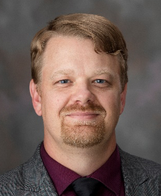 |
|
Graham Plastow is Professor of Livestock Genomics at the University
of Alberta. He is also CEO of Livestock Gentec a not-for-profit centre
dedicated to improving the uptake of genomic tools by the Canadian
livestock industry. He sits on the advisory boards of a number of
organizations including Delta Genomics, AgSights, the Dairy Cattle
Genetics Research and Development (DairyGen) Council of Canada, the
Genetics Committee of the Canadian Centre for Swine Improvement, the
NSERC Technology Access Centre for Livestock Production at Olds
College, the steering committee of the international Functional
Annotation of Animal Genomes (FAANG) Consortium and the International
Advisory Board of Wageningen Institute of Animal Science. His research
interests include disease resilience, feed efficiency and animal
welfare working in pigs, beef and dairy cattle, sheep, chickens and
occasionally other species. Prior to returning to academia in 2007 he
worked in the agri-food industry for nearly 25 years and he was CTO of
Sygen International one of the world’s largest animal breeding
companies. He has published more than 200 peer-reviewed manuscripts and
has been invited to speak at numerous events around the world.
| 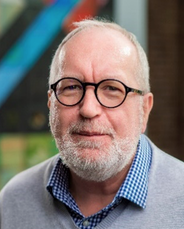 |
|
Elena Rice recently joined Genus PLC, a world-leading animal
genetics company, as Chief Scientific Officer in July 2019. Prior to
joining Genus, Elena has spent 18 years in increasingly senior roles
within Monsanto and Bayer, leading teams using pioneering science and
cutting-edge technology to help farmers grow food more sustainably.
Elena built deep expertise in running R&D programs, regulatory science,
and portfolio management. At Monsanto/Bayer she was responsible for a
pipeline spanning seeds, traits and biological products (among others)
across all phases of development and all geographies. She has led the
development and introduction of new genetic improvement technologies
and also nurtured a portfolio of gene editing projects. Elena received
her PhD in Plant physiology and biochemistry from the Timiryazev
Institute of Plant Physiology in Moscow.
|  |
|